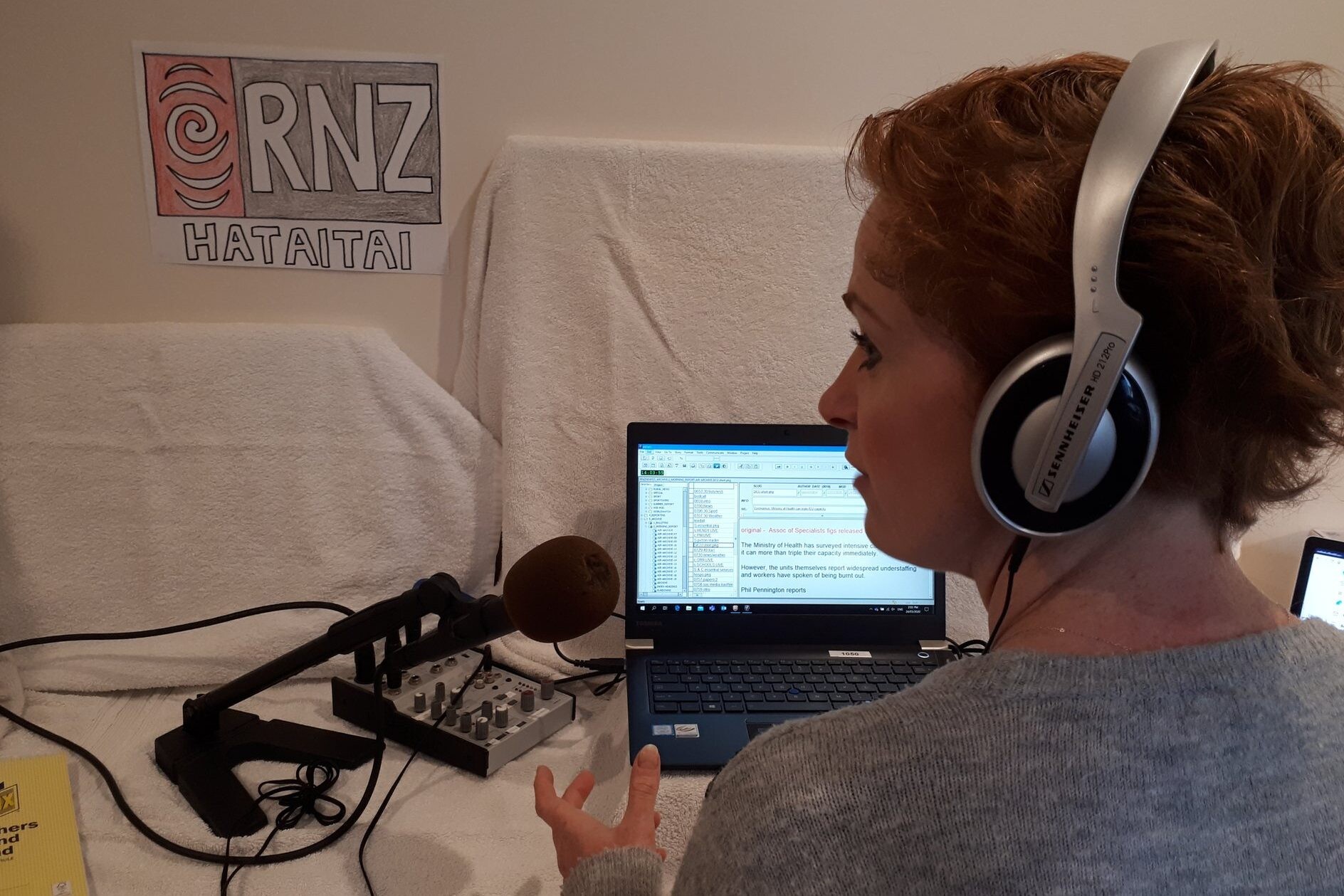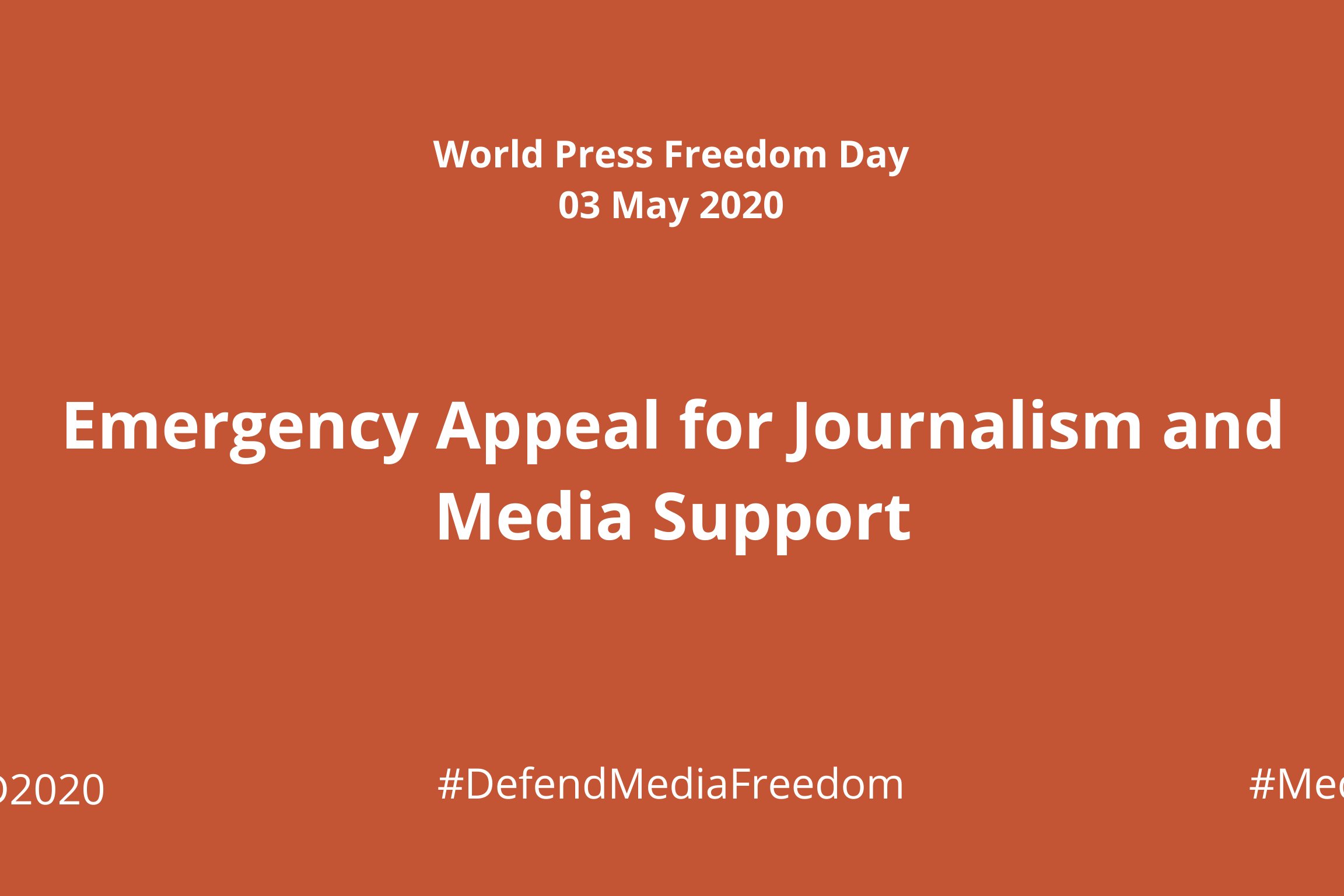The coronavirus pandemic has had a major impact on journalism around the world. But while much has been said about its impact in Europe and North America, what has its effect been on news outlets across the Caribbean region?
By Aurora Herrera
From journalist safety to funding models, COVID-19 has had a swift and dramatic impact on journalism, with the most reported changes seen in the European and North American media context.
Here, local newsrooms have been hit particularly hard as national economies contract and advertising revenues dry up, with the lion’s share going to larger national outlets. As a result, many local newsrooms have implemented salary and job cuts, further impacting on their ability to cover the pandemic.
Additionally, while public trust has increased in certain outlets as citizens search for sources of reliable information, some governments have taken the opportunity to double down on anti-news media rhetoric and even implement emergency laws that restrict the ability of newsrooms to critique and hold power to account. In some cases, this has contributed to the erosion of the public’s trust in media institutions and in turn, their willingness to support these institutions financially.
According to the The New York Times, since the beginning of the pandemic approximately “36,000 workers at news companies in the U.S. have been laid off, been furloughed or had their pay reduced”. This is against a wider backdrop of 30 million newly unemployed Americans. Some media houses that rely solely on advertising revenue have completely shut down. Ironically, even though audiences have increased due to the public’s need for up-to-date and accurate information, media houses that were already tottering on the brink of extinction before the coronavirus pandemic, have felt the final nail in the coffin. Local news outlets, with mandates for public service broadcasting as well as public interest journalism, which are needed now more than ever, have suffered the worst of the cuts.
Even larger public broadcasters, which have adapted and committed themselves to additional educational services for children, factchecking and news coverage throughout the pandemic, have also suffered funding cuts, salary adjustments, furloughs and job losses. Last week the BBC announced that in order to reduce costs, cuts to local news programmes across the country will have to happen.
Looking at the Caribbean region
With over 40 million people inhabiting over 26 islands, the Caribbean region is not homogenous in its social, economic and political aspects. As such, each island has its own journalism culture. However, due to the size of most of the islands, hyperlocal journalism that is dependent on fragile funding sources, presents a common denominator.
Sadly, the trends that have emerged in North America and Europe have also emerged in the Caribbean region and have largely been underreported so far. To find out more, the Public Media Alliance spoke to colleagues from Barbados, Jamaica and Trinidad & Tobago.
In the second week of May, the RJRGLEANER communications group in Jamaica cut the salaries of 93 workers. The organisation, which includes broadcast and newspaper arms, is heavily reliant on advertising to survive.
George Davis, Head of the Jamaican Press Association, commented on this to the Public Media Alliance: “Advertising is the lifeblood of most entities and the radio stations and the TV stations and the newspaper publishers. Everybody has felt the squeeze. [Covid] has had a significant economic impact throughout the economy and media has not been spared.”
In March, management at another Jamaican broadcaster, IRIE FM, sent workers home after which their colleagues took industrial action in protest. “The issue that went to the industrial disputes tribunal…when the workers and the union started to settle, then management came and tried to get some [more] people out through the door and there was another dispute,” Davis said.
Julian Rogers, Managing Director of the Jamaica Observer newspaper, noted that the drop in advertising revenue is predicted to be 40%. He also spoke about cuts that the Observer has had to make throughout the organisation in the wake of Covid:
“The cuts have been as deep as 30% and as low as 20%…”
“The cuts have been as deep as 30% and as low as 20% in terms of the salary cuts that took place for affected people at the very top of the organisation and in the middle in the supervisory capacities,” Rogers said. “We did unfortunately have to do some layoffs as well. We did an assessment of how essential people were to the organisation in a period like this and therefore we had a small number of layoffs and a few redundancies, emphasis on few, as we reorganised the structure.”
According to Rogers, the management did their best to safeguard the more vulnerable employees by executing a scheme that did not affect those at the “lower end of the earning scale.”
In total, Rogers placed the current total number of layoffs below 25 per cent.
In Trinidad and Tobago, media houses have suffered budget cuts of up to 50%. Wesley Gibbings, an Executive Member of the Association of Caribbean Media Workers informed the Public Media Alliance that even though media managers have mostly opted for salary cuts instead of layoffs, this 50% reduction in funding “has meant salary reductions in almost all sections of print and broadcast media”.
In the last week of May, the Trinidad Newsday newspaper laid off “several permanent members of the editorial staff.” A timeframe of three months without pay was outlined by their HR department.
But like elsewhere, larger national broadcasters have been able to retain the majority of their staff. At the Caribbean Broadcasting Corporation (CBC) in Barbados, none of the permanent staff have been laid-off although there has been a significant reduction in the number of freelancers according to CBC Executive Producer, Mark Seale.
Coronavirus: Resources & best practices
Essential resources for sourcing and reporting news about the coronavirus pandemic
The new normal
Aside from the financial impact, the pandemic has fundamentally changed the way we interact, with social distancing being one of the first measures to dramatically change the way media outlets operate – both in the newsroom and in the field.
“There is a significant increase in remote operations”, says Gibbings. “Journalists attend media conferences using online platforms when they can. There has been a reduction in the volume of “field” reports and a greater reliance on online sources. In most newsrooms there is observance of physical distancing and there have been stepped up actions to ensure proper hygiene.”
Similarly in Barbados, the retention of permanent staff requires hygiene to be the top priority. Reporters here were provided with special software to access their desktop computers from home.
“Due to social distancing, most interviews and media conferences were done via Zoom or Skype technologies,” Seale said. In the few exceptions where an ENG crew went on assignments, personal protective equipment was used, along with boom mics to ensure a safe distance from the newsmakers.”
Studio operations were also reduced, with a skeleton staff staying on-site. The CBC’s current affairs talk shows were conducted via Zoom, with the host and guests all logging in from their respective homes. “News scripts were emailed to the radio and TV presenters to eliminate the need to touch paper scripts. iPads or tablets were used to read from,” Seale said.
Davis notes that Covid-19 has ushered in a way of reporting in Jamaica that nobody in the newsroom had considered before.
“In Jamaica the issues that you are especially careful in have to do with crime and violence,” he said. “With Covid-19, the coverage is different. With people you prided yourself on getting close to, you now have to stay far from these people. [On previous assignments] I was outfitted with a bullet-proof vest to go into a volatile area. Now it’s about a face shield and a mask, much less expensive but even more important. COVID fires at everybody so you are as at risk as the principal actors in any conflict in a crime zone.”
“With people you prided yourself on getting close to, you now have to stay far from these people”
In North America and Europe, COVID-19 has also provided an excuse for government officials to mistreat journalists and curtail press freedom. In addition to decrees criminalising the spreading of false information with heavy fines or the threat of jail time, journalists are also facing sudden media capture of their independent media houses due to an absence of funding. Journalists are also facing increased levels of violence in the field as well as harassment online.
Fortunately, Jamaica, Trinidad and Barbados have reported a willingness by politicians to work closely with the media to disseminate accurate information to the public. Journalists are, however, aware of the perils of such a relationship.
Davis noted that in Jamaica, the journalists “are loathed to taking any form of state assistance lest this state assistance come with a handcuff of having to carry stories with a particular government tinge or colour.”
There is also evidence to suggest that in Trinidad, outside of the COVID-19 protocol, government officials have maintained antagonist attitudes towards the media.
But in Barbados, Seale credits the fact that the CBC is the government-owned public broadcaster for the courteous interactions between journalists and government officials.
“We were fully embraced by politicians to get the various messages to the public,” he said. “Most of the updates on the COVID situation were aired simultaneously on TV, radio and social media. The promotion of the pending announcements were also aired on CBC’s various platforms.”
In Trinidad, Gibbings told PMA that there has been a “a general improvement in relations between both government and opposition politicians and journalists.”
But he also noted that the typical acute criticism does still occur, particularly regarding ongoing political conflict. Last week, Prime Minister Keith Rowley responded to a story by the Trinidad Express by accusing the media of a lack of independence saying, “We don’t have an independent or we don’t have independent media houses in Trinidad and Tobago. What we have are media houses with interests to protect.”
Despite being ranked 6/180 on the Reporters Without Borders (RSF) Press Freedom Index and having their media personnel listed as essential workers, Jamaican journalists have had to fight for the freedom to report since the beginning of the pandemic. The government published legislation that sought to bar journalists from reporting from quarantine areas and operating outside of curfew hours.
“The Press Association of Jamaica has pushed back against these impositions,” Davis said. “It’s been a battle at times but to be fair, every time we have raised an objection the government has responded. We can report that on every legislative attempt to restrict our freedoms, to bar us from operating, we have successfully pushed back so those measures have been revisited and been crafted, redrafted and been published anew.”
Considering the human condition
Around the world, social distancing measures have forced families to separate in order to protect vulnerable members from the potential spread of the virus. This has had a major impact upon childcare and mental health as familial support systems are not currently as available.
The contraction of economies has also exacerbated the existing financial pressures on every member of society, including journalists. These key workers also have families they need to protect and support.
Rogers noted that within the Jamaica Observer, the management has had to consider the conditions of such workers and adjust “policy” and “approaches.”
“[Workers] can no longer rely on a grandmother or an auntie or any other member of the family because of the potential impact on their health,” he said. “You also have a situation where there is no daycare available. You’re also dealing with the fact the schools are closed so you really have to consider the human condition to be able to understand and to respond and to be fair and to be considerate in the policy and the approaches in dealing with this situation.”
Unfortunately, not every media house will have this same mindset, especially those with less assets. Nor have journalists been given the status of “key worker” in every country.
The Caribbean region is not as resourced as many countries in Europe or North America. From the availability of personal protective equipment to the acquisition of hygiene products and low-risk methods of transportation in daily life, the human condition of journalists in the Caribbean must be acknowledged as different and challenging.
The impact of COVID-19 on Caribbean newsrooms has already been unforgiving and there is no clear end in sight to the pandemic and its repercussions. While many media outlets have been quick to implement social distancing and hygiene policies, the hyperlocal nature of news organisations across the region means that they are especially vulnerable to the economic pressures of the pandemic. Much like in Europe and North America, such vulnerabilities to the long-term sustainability of these outlets could pose a significant challenge to public knowledge and risk the creation of news deserts, where news with a local context and resonance becomes more scarce.
The Public Media Alliance will continue to support and promote the interests of journalists and support our partners throughout the Caribbean region at this critical time and beyond.
We ask our members in the region to keep us informed of any challenges they might face.
Header Image: This transmission electron microscope image shows SARS-CoV-2—also known as 2019-nCoV, the virus that causes COVID-19. Credit: NIAID-RML/iStock
Related Posts
15th May 2020
Global Call Out: COVID-19 takes its toll on independent media
It is essential that citizens have…
15th May 2020
Assistance and best practices for remote broadcasting during COVID-19
As many journalists adapt to working…
13th May 2020
The financial impact of Covid-19 on European public broadcasters
Many European public broadcasters are…
13th May 2020
Emergency appeal for journalism and media support in response the the COVID-19 crisis
PMA have joined more than 140…



